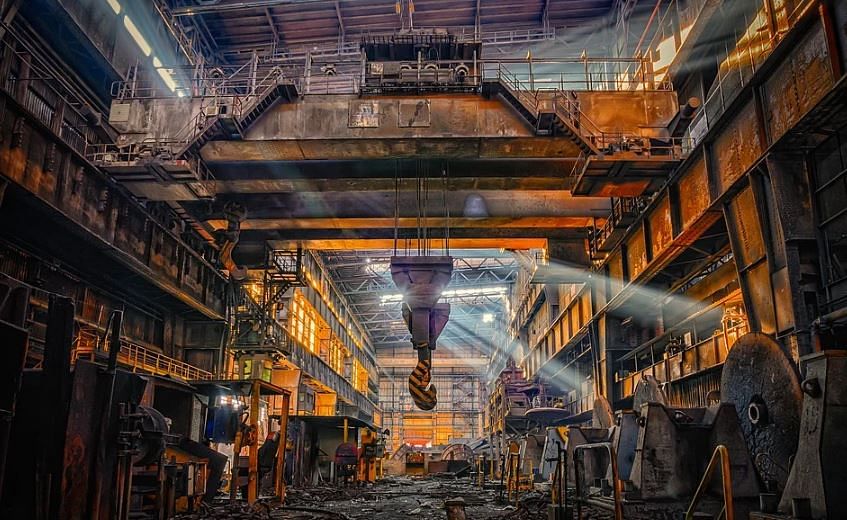
The steel sector in India has started showing signs of improvement and in the month of June, the country's crude steel production stood at 6.8 million tonnes (MT), according to the Ministry of Steel.
At, 6.8 MT, the production was 17.7 percent higher over May 2020, but on a year-on-year basis it was lower by 27.2 percent over June 2019, the ministry said in an update.
It noted that economic activities, after hitting the nadir in April 2020 due to spread of Covid-19 pandemic and nationwide lockdown, have started showing signs of improvement from May 2020.
"This was reflected in the performance of eight core industries (with a weight of 40.27 percent in IIP) which as against a decline of 37 percent in April 2020 registered a decline of 23.4 percent in the month of May 2020. Similarly, the Index of steel production which fell sharply by 83.9 percent in April 2020 registered a decline of 48.4 percent in May 2020," the ministry said.
On the output of steel, it said the production has shown a consistent improvement after witnessing a decline in April this fiscal.
The ministry further said the production of finished steel in June 2020 at 5.9 MT, was up 15.6 percent compared to 5.1 MT in May 2020. However, on a year-on-year basis, the output of finished steel in June 2020 was lower by 33.3 percent.
On a month-on-month basis, in June 2020, the retail prices of HRC (hot-rolled coil), CRC (cold rolled coil) and rebar increased by 1.43 percent, 1.69 percent and 2.17 percent respectively, due to uptick in various activities because of phased relaxation in lockdown along with an increase in exports during the month.
"BSE Sensex and BSE Metal Indices registered an increase of 6.1 percent and 4.7 percent respectively, in the month of June 2020 indicating recovery after lockdown," it said.
The government has set a target of scaling up India's crude steelmaking capacity to 300 million tonnes by 2030.
The ministry also said while ensuring an increase in the production of steel and its consumption, it is also necessary to identify and address the challenges the users face in terms of adopting domestic steel products.